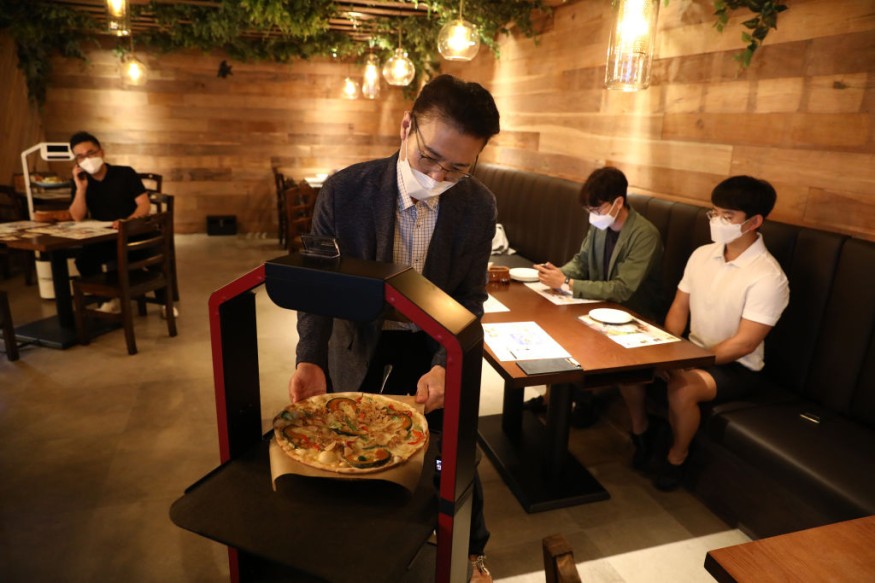South Korean telecommunications provider KT is expected to launch several new robotic units in the service industry. Among the businesses included in the project are hotels and restaurant companies that need assistance during the pandemic.
KT Debuts Robotic Disinfection Units

The new robots from Korea, launching in the management and services industry, are constructed to help both employees and customers decrease the risk of coronavirus transmission inside business establishments.
The main goal of the KT robots is to minimize the infections across the particular field, in which many people are involved in transactions and services every day.
According to KT's announcement last Wednesday, the telecom company has plans to either sell or rent approximately 4,000 disinfection robots starting April until the final quarter of 2022. Alongside the hotel and management businesses, KT plans to partner with other organizations such as government institutions, hospitals, and welfare facilities.
The autonomous robots that KT will provide come in two various sizes. The function of the machines will focus on sterilizing airborne viruses and bacteria through the technology of air plasma, The Korea Herald reports.
Each of the robots will have a lamp that can emit ultraviolet-C light. These lights are commonly utilized in some places for disinfecting floors. The light works with an ultraviolet purification induced by its short wave properties.
Moreover, ultraviolet-C lights can also clean immediate aerial areas, purifying the small region from dust and toxic gas particles.
The KT robots were first introduced in Barcelona, Spain, during the Mobile World Congress 2022. The robots were produced in partnership with the prestigious Bear Robotics. Each unit was programmed with an artificial intelligence system that could connect to a 4G network and above.
ALSO READ : Indestructible Robotic Animal 'Mini Cheetah' Can Run 9mph in Gravel, Ice, and Any Terrain
Future of Autonomous Robots in the Service Industry and Other Businesses
KT AI business head and senior vice president Lee Sang-ho explained at the conference that the company aims to form a bridge between the robotic technologies we have today and the industries that need such types of services.
KT also pursues to be among the robot platforms that cater to specialized robotics for consumers, Sang-ho added. Before the launch, KT service robots have already demonstrated their capacity in many industries. Some of the units took the role of baristas, hotel couriers, and restaurant servers.
KT's autonomous robots are not that new. Many companies, especially during the pandemic, have already released their versions of AI-powered machines in the service industry.
In the UK, a Chinese restaurant already utilized service robots in their establishments to keep human contact as safe as possible while keeping strict health protocols followed.
In the US, the hamburger-making robot Flippy already works with its tortilla-making successor Chippy in various food chains across the country.
Pompeii's archeological site is also protected by Boston Dynamics' robotic service guard dog named Spot for the safety of the place against illegal intruders and excavators.
AI-powered autonomous robots have been increasing to cater to their functions not just to the service industry, but also to other businesses. The human-like capabilities of these machines are also leaping quickly, from peeling a banana to having their conscious minds.
RELATED ARTICLE : Boston Dynamics Robotic Guard Dog 'Spot' Hired to Protect Pompeii Archaeological Site
Check out more news and information on Robotics in Science Times.
© 2026 ScienceTimes.com All rights reserved. Do not reproduce without permission. The window to the world of Science Times.










